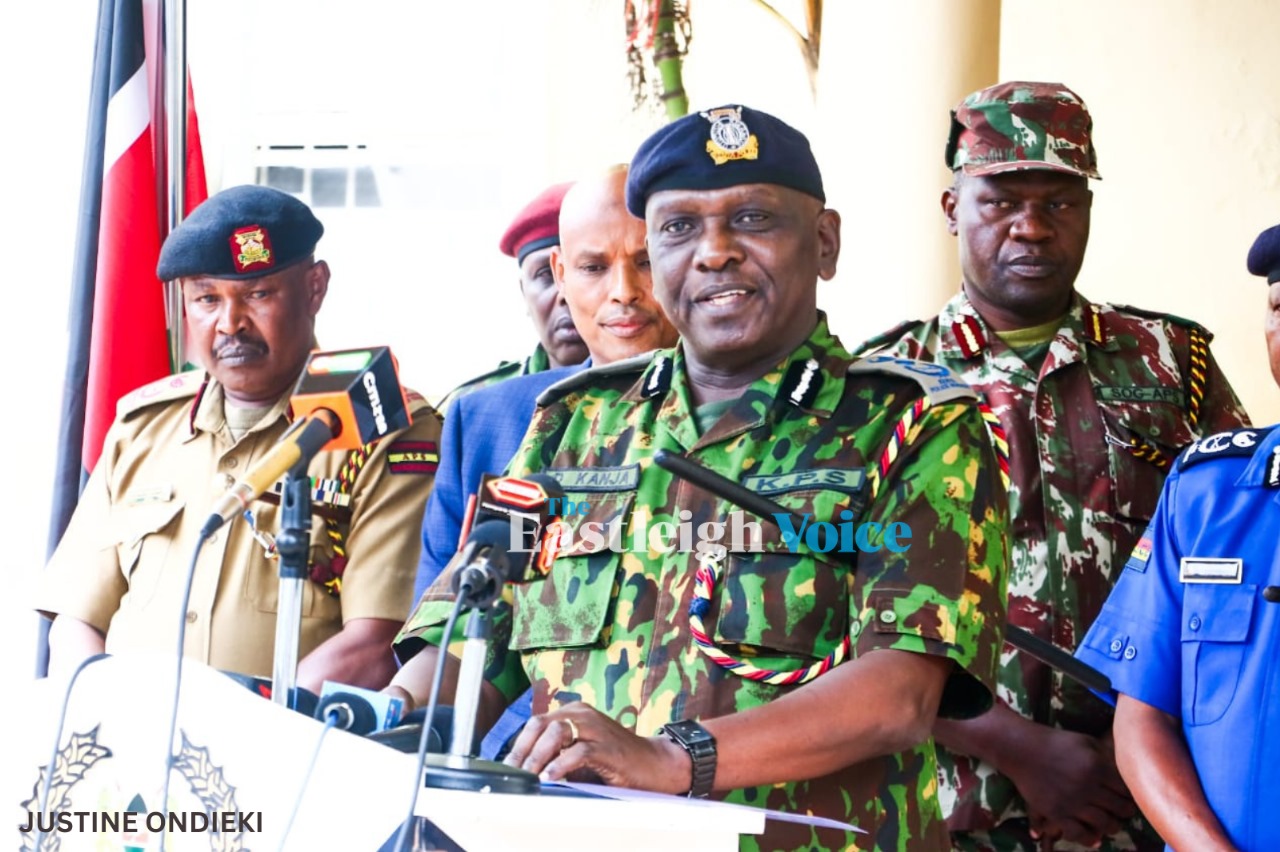Police reforms group demands competitive process for new IG appointment

PRWG-K noted that the next Inspector General must meet the key qualifications outlined in section 11 of the National Police Service Act.
The Police Reforms Working Group-Kenya (PRWG-K) has called for competitive recruitment of a new Inspector General of police following the resignation of Japhet Koome on July 12.
Koome's resignation comes after weeks of violent protests against proposed tax increases, which have resulted in over 50 fatalities.
More To Read
- By-elections: KNCHR warns of rising tension as voting kicks off in 24 contested areas
- ‘Everyone should vote freely’: KNCHR warns against intimidation and bribery in by-elections
- Human Rights body flags risky provisions in Computer Misuse Act
- UN human rights experts visit Kenya privately amid concerns over crackdowns, civic freedoms
- Court lifts orders that stopped police recruitment, exercise to continue Monday
- AG Dorcas Oduor moves to lift court orders blocking cybercrimes law
According to the Kenya National Commission on Human Rights (KNCHR), these protests have also led to 413 injuries, 59 abductions or disappearances, and 682 arbitrary arrests.
In a statement released on Wednesday, PRWG-K noted that the next Inspector General must meet the key qualifications outlined in section 11 of the National Police Service Act. These qualifications include Kenyan citizenship, a degree from a recognised university in Kenya, and a proven track record of distinction in their career.
Additionally, the candidate must meet the requirements of Chapter Six of the Constitution and have at least fifteen years of senior management experience, with expertise in areas such as criminal justice, policy development, finance, public administration, strategic management, security, law, sociology, or government.
“In line with these key qualifications, we urge the President to strongly also consider competitively appointing a civilian to head the National Police Service,” reads the statement.
The group reiterated their previous concerns regarding Koome's appointment in November 2022, citing issues of integrity and accountability from his tenure as Nairobi County Commander.
“These concerns were ignored, and Parliament proceeded to appoint him based on the nomination of President William Ruto,” the statement read.
PRWG-K also highlighted the significance of democratic policing, community engagement, accountability, professionalism, and human rights as underscored in the Philip Waki Report on Post-Elections Violence and the Philip Ransley Report on Police Reforms.
The reports were instrumental in shaping the current policing framework under the 2010 Constitution of Kenya.
According to the groups, the reforms introduced post-2010, established several institutions, including the National Police Service Commission (NPSC), to handle human resources and disciplinary control within the National Police Service, the Office of the Inspector General to lead the Service, and the Internal Affairs Unit to investigate complaints against police officers.
The Kenya Police Service and Administration Police Service were made independent, and the Independent Policing Oversight Authority was formed to provide civilian oversight and investigate serious complaints against police officers.
They noted that initially, Section 12 of the National Police Act mandated the NPSC to competitively recruit the Inspector General through advertisement, shortlisting, interviews, and parliamentary vetting.
However, the 2014 Security Laws Amendment Act shifted this process, granting the President sole authority to nominate the IG for parliamentary vetting, thus bypassing the NPSC.
“This amendment also altered the procedure for the IG's removal, limiting the President's power in this regard,” the groups said.
They criticised these changes, stating that they undermine police independence, accountability, and the spirit of the Constitution.
"It has fueled widespread and systemic police corruption, extortion, criminality, widespread human rights violations and lack of public accountability," they noted.
They further stressed the importance of thorough investigations and criminal accountability for police misconduct, calling on the ODPP, DCI and IPOA to urgently investigate and prosecute officers responsible for recent rights violations.
“It remains a matter of public concern that no single officer has yet been arrested for the arbitrary arrests, abductions, or unlawful killing of Kenyans in recent weeks,” the groups said.
Top Stories Today










































